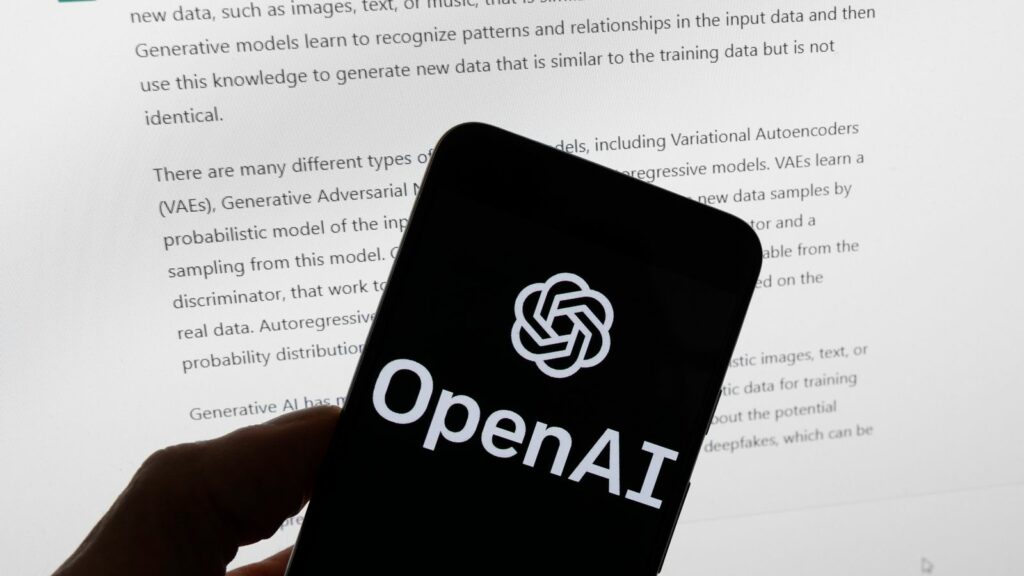Artificial intelligence will affect up to 40% of jobs worldwide, IMF warns | Business News

Artificial intelligence will affect up to 40% of jobs worldwide, the International Monetary Fund (IMF) has warned.
This could rise to 60% of roles in advanced economies like the UK – but it is believed that, in half of these cases, AI will benefit the workforce.
In a new report, the IMF warned that AI’s consequences for society remain difficult to foresee, but the technology is likely to exacerbate income and wealth inequality.
Please use Chrome browser for a more accessible video player
2:31
Will AI mean ‘no job is needed’?
Developing economies are much less likely to “seize” AI’s advantages, fuelling a digital divide and increasing income disparity between countries.
Kristalina Georgieva, the IMF’s managing director, said the world is “on the brink of a technological revolution that could jumpstart productivity, boost global growth and raise incomes around the world” – but some could lose their livelihoods as a result.
While automation and IT have often affected routine tasks, she explained that AI is unusual because of its ability to impact well-paid careers.
“Jobs that require nuanced judgment, creative problem-solving, or intricate data interpretation – traditionally the domain of highly educated professionals – may now be augmented or even replaced by advanced AI algorithms,” the IMF report says.
More on Artificial Intelligence
Read more from Sky News:
Six held over plot to disrupt London Stock Exchange
Shipping costs up 300% as Suez crisis deepens
Please use Chrome browser for a more accessible video player

0:56
AI can’t be imperfect, says Luhrmann
Although younger workers may find it easier to embrace the opportunities that artificial intelligence brings, older workers could struggle to adapt.
“In most scenarios, AI will likely worsen overall inequality, a troubling trend that policymakers must proactively address to prevent the technology from further stoking social tensions,” Ms Georgieva warned.
The UK is said to be among the countries that is best prepared for the disruption AI will bring – based on digital infrastructure and the education of its workforce.
In other developments, the Information Commissioner’s Office is launching a consultation to examine how data protection law should apply to the development and use of generative AI apps.
It will first examine whether it is lawful to train models such as ChatGPT on personal data scraped from the web.
Generative AI technology can be used to create new content including words, pictures, video, computer code and music from scratch, but based on large amounts of data the program has been trained on, much of which is often scraped from internet and fed into the system.



Recent Comments